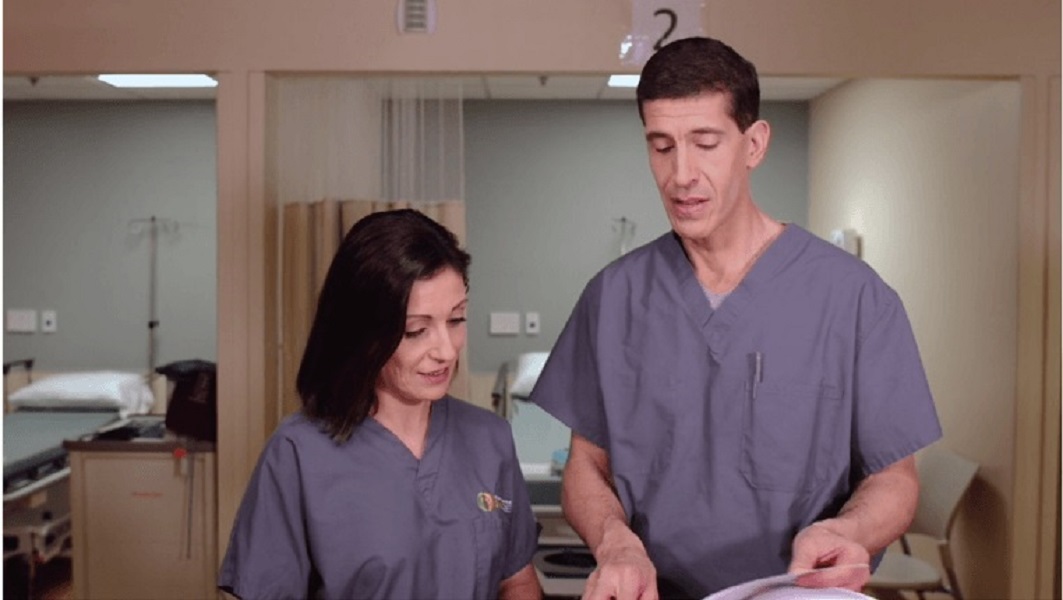
Explore the intricate details of the Paul Mackoul, MD lawsuit, a case involving a controversial medical procedure that led to a tragic outcome. Learn about the allegations, legal proceedings, and implications for medical practice standards.
Introduction
The lawsuit involving Dr. Paul Mackoul has garnered considerable attention both within the medical community and beyond. Dr. Mackoul, an established gynecologic surgeon, found himself at the center of a legal storm following the death of a uterine cancer patient. This patient, tragically, succumbed after Dr. Mackoul performed a catheter installation procedure in her chest—a procedure he was not certified to conduct. The allegations brought forth by the patient’s family detail a series of critical errors that led to her untimely demise, sparking debates on medical ethics, certification standards, and patient safety. This post delves into the multifaceted aspects of the lawsuit, offering a comprehensive overview of the events, legal arguments, and broader implications.
Background of Dr. Paul MacKoul
Dr. Paul MacKoul is well-known in the field of gynecologic surgery. As a co-founder of The Center for Innovative GYN Care (CIGC), he has played a pivotal role in advancing surgical techniques that emphasize minimal invasiveness, thereby enhancing patient safety and outcomes. His impressive credentials and extensive experience have established him as a leader in his field. However, the lawsuit against him has raised significant questions about his professional conduct and the safety of the procedures he has pioneered. Understanding his background is crucial to grasping the full context of the Paul Mackoul, MD Lawsuit.
What Happened?
In 2015, a patient diagnosed with uterine cancer sought treatment under the care of Dr. Mackoul. During the course of her treatment, Dr. Mackoul performed a catheter installation into her chest. This decision proved to be fatal, as it was later revealed that Dr. Mackoul was not certified to perform such cancer-related surgeries. The patient’s family alleged that during the procedure, Dr. Mackoul punctured a vein, leading to the accumulation of blood in her chest and causing her lung to collapse. This tragic outcome prompted the family to file a lawsuit, accusing Dr. Mackoul of negligence and misconduct. The specifics of this incident are critical to understanding the lawsuit’s foundation and the serious implications of performing medical procedures without proper certification.
Legal Allegations and Claims
The lawsuit brought against Paul Mackoul, MD, was grounded in allegations of medical negligence and wrongful death. The patient’s family claimed that Dr. Mackoul’s lack of certification to perform cancer-related surgeries directly contributed to the fatal outcome. They argued that his decision to install the catheter and the procedural errors amounted to a breach of duty and standard of care. The allegations further suggested that Dr. Mackoul failed to adhere to established medical protocols, resulting in the puncture of a vein and subsequent complications that led to the patient’s death. These claims underscore the legal and ethical responsibilities of medical professionals to operate within their certified areas of expertise and ensure patient safety.

The Legal Proceedings
The legal proceedings surrounding the Paul Mackoul, MD lawsuit were closely watched, given the high-profile nature of the case and the serious allegations involved. The court hearings delved into various aspects of the incident, including Dr. Mackoul’s qualifications, the details of the procedure, and expert testimonies on medical standards and practices. Both sides presented compelling arguments: the plaintiff’s side emphasized the breach of duty and the resulting harm, and the defense focused on countering the claims of negligence. The proceedings highlighted the complexities of medical malpractice cases, where proving negligence involves detailed scrutiny of medical records, procedural steps, and adherence to professional standards.
Medical Community Reaction
The lawsuit against Paul Mackoul, MD, sparked widespread reactions within the medical community. Colleagues, medical professionals, and healthcare institutions expressed varied opinions on the case. Some viewed it as a cautionary tale about the importance of strict adherence to certification and the potential consequences of overstepping professional boundaries. Others sympathized with Dr. Mackoul, acknowledging the pressures and complexities of medical practice. The case prompted discussions on enhancing oversight, ensuring rigorous certification processes, and fostering a culture of patient safety. The medical community’s response reflected a broader recognition of the need for continuous improvement in medical practices and the safeguarding of patient trust.
Patient Safety and Trust
Patient safety is a cornerstone of medical practice, and the Paul Mackoul, MD lawsuit brought this principle into sharp focus. The case underscored the vital importance of ensuring that qualified and certified professionals perform all medical procedures. It also highlighted the devastating consequences that can arise when this trust is breached. Patients and their families rely on the expertise and judgment of medical professionals, and any lapse in adherence to professional standards can have catastrophic outcomes. This lawsuit serves as a clear reminder of the importance of maintaining the highest standards of patient safety and continuously reinforcing trust between patients and healthcare providers.
Impact on Dr. Mackoul’s Career
The lawsuit had significant repercussions for Dr. Mackoul’s professional career. The legal battle, coupled with the public scrutiny, affected his reputation and standing within the medical community. The case raised questions about his professional judgment and adherence to certification requirements. The outcome of the lawsuit, regardless of the final verdict, has undoubtedly left a lasting impact on Dr. Mackoul’s career trajectory. It serves as a poignant example of how a single incident, particularly one involving patient harm, can alter the course of a medical professional’s career and influence perceptions within the medical community and beyond.
Broader Implications for Medical Practice
Beyond the individual case of Dr. Mackoul, the lawsuit has broader implications for medical practice as a whole. It highlights the critical need for rigorous certification processes and ongoing professional development to ensure that medical practitioners are fully equipped to perform their duties safely and effectively. The case also underscores the importance of institutional oversight and the role of regulatory bodies in maintaining high standards of practice. These broader implications call for a continuous evaluation of medical practices, training programs, and certification requirements to prevent similar incidents in the future and to uphold the integrity of the medical profession.

Legal Precedents and Outcomes
The legal outcomes of the Paul Mackoul, MD lawsuit could set important precedents for future medical malpractice cases. Depending on the court’s ruling, the case could influence how courts interpret and adjudicate similar allegations of medical negligence and wrongful death. The precedents established in this case could shape the legal landscape for medical malpractice suits, affecting how plaintiffs and defendants approach such cases and how legal standards are applied. The potential legal precedents underscore the case’s significance not only for the parties involved but also for the broader legal and medical communities.
Institutional Responses
In response to the lawsuit, various medical institutions and professional organizations may review and strengthen their policies and procedures related to certification, training, and oversight. These responses could include implementing more rigorous certification requirements, enhancing monitoring and evaluation processes, and promoting a culture of transparency and accountability. Institutional responses to the lawsuit are vital for ensuring that similar incidents do not occur in the future and for maintaining public trust in the healthcare system. By taking proactive measures, institutions can demonstrate their commitment to upholding the highest standards of medical practice and patient safety.
The Impact on The Center for Innovative GYN Care (CIGC)
The lawsuit against Dr. Paul MacKoul inevitably casts a shadow over The Center for Innovative GYN Care (CIGC), the institution he co-founded. CIGC has been recognized for its cutting-edge techniques and patient-centric approach, making significant strides in the field of gynecologic surgery. However, the legal battle has raised questions about the practices and standards upheld at the center. The outcome of the lawsuit could have far-reaching implications for CIGC, affecting its reputation, operations, and prospects. The institution’s response to the allegations and its support for Dr. MacKoul will be crucial in navigating this challenging period.
Public and Media Reaction
The Paul Mackoul, MD lawsuit has not only attracted attention within the medical community but has also sparked widespread interest among the public and media. News outlets have covered the case extensively, often highlighting the serious nature of the allegations and the prominence of Dr. MacKoul in his field. Public opinion has been divided, with some expressing support for Dr. MacKoul based on his track record and contributions to gynecologic surgery, while others side with the plaintiffs, calling for accountability and transparency. The media coverage has played a significant role in shaping public perception and influencing the discourse surrounding the case.
Patient Advocacy and Support
The Paul Mackoul, MD lawsuit also underscores the importance of patient advocacy and support. Patients and their families must have access to resources and information to make informed decisions about their healthcare. Patient advocacy organizations play a crucial role in providing support, education, and guidance to those navigating complex medical situations. The lawsuit highlights the need for robust patient advocacy efforts to ensure that patient’s rights are protected and that they receive the highest quality of care. By fostering a strong patient advocacy network, the healthcare system can better serve and protect its most vulnerable members.

Future Directions in Medical Certification
In light of the issues raised by the Paul Mackoul, MD lawsuit, there may be a push for reforms in medical certification processes. These reforms could involve enhancing the rigor and comprehensiveness of certification exams, implementing more frequent re-certification requirements, and incorporating practical assessments to ensure that practitioners have the necessary skills and knowledge to perform their duties safely.
Enhancing Patient-Doctor Communication
Effective communication between patients and doctors is essential for ensuring safe and effective medical care. The lawsuit highlights the potential consequences of miscommunication or lack of transparency in medical practice. Enhancing patient-doctor communication involves actively listening to patients’ concerns, providing clear and comprehensive information about treatment options and risks, and fostering a collaborative approach to healthcare decision-making. By prioritizing communication, medical professionals can build stronger relationships with their patients and reduce the likelihood of misunderstandings and errors.
Conclusion
The Paul Mackoul, MD lawsuit is a significant case that sheds light on critical issues within the medical field, including certification standards, ethical practice, patient safety, and legal accountability. The incident and its aftermath underscore the importance of maintaining strict adherence to professional boundaries and ensuring that qualified and certified practitioners perform all medical procedures. The broader implications of the case call for continuous evaluation and improvement of medical practices, training programs, and regulatory frameworks. By learning from this case, the medical community can take proactive steps to enhance patient care, uphold ethical standards, and prevent similar tragedies in the future.
Read Also: Unlocking the Potential of Email Marketing with FissionShare.email
